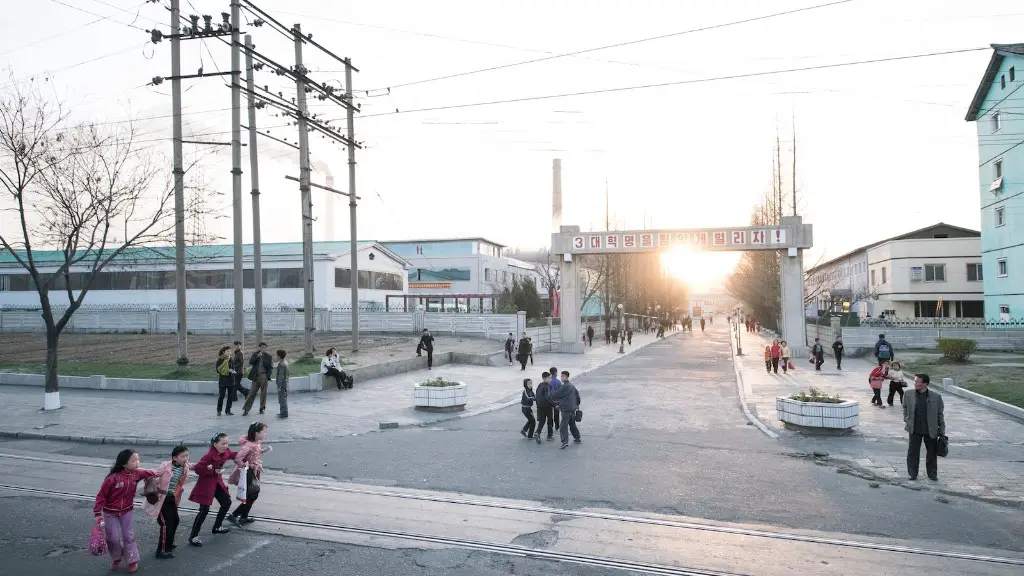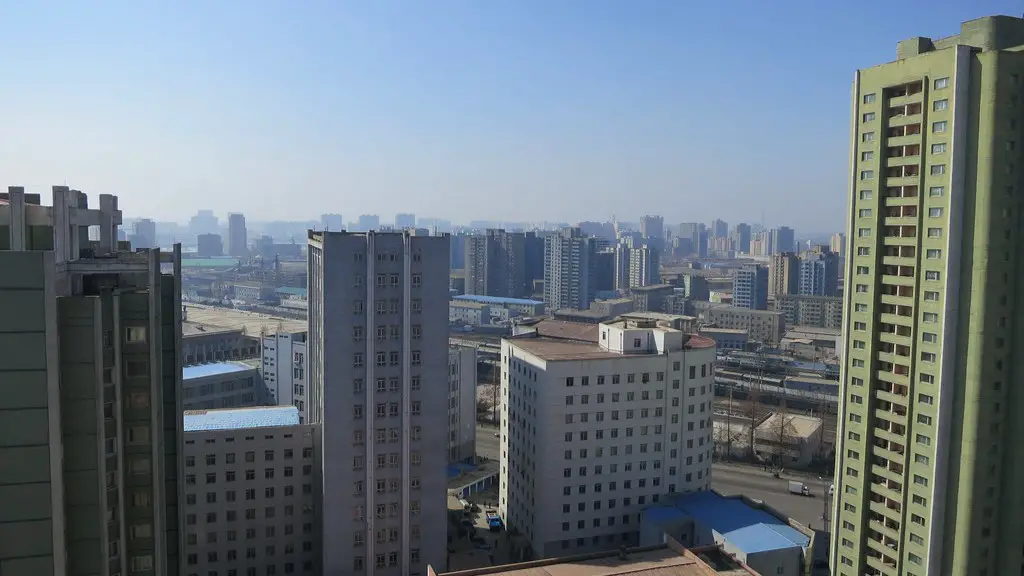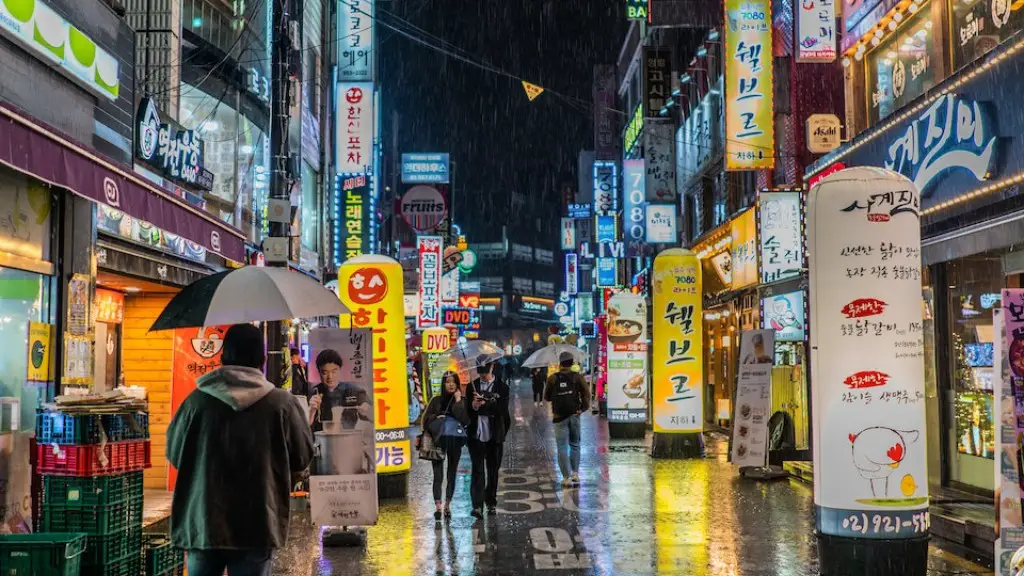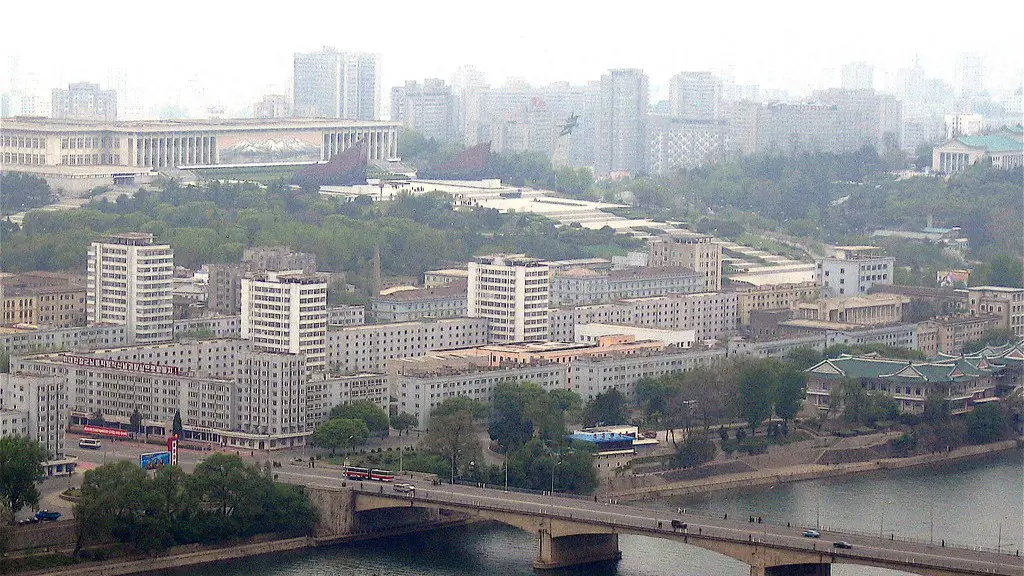Government-sanctioned Tourism
Tourists visiting North Korea may be regimented in their travels and activities, but the country is remarkable in its strict adherence to its social and political framework. North Koreans are truly prohibited from connecting with strangers from outside the country, and it’s not allowed for visitors to travel outside approved sightseeing places. Most of the trips are packaged and guided by government-sanctioned tour guides.
The government inspects the interests of visitors and assigns a local guide for each group, who monitors travellers during their stay and makes sure travelers do not wander and see anything that isn’t allowed. The visitors are also restricted to a strict itinerary and mandated to stay in government-run hotels and follow government-monitored travel plans.
The government of North Korea also mandates that visitors to the country arrive through specifically approved entry points. Currently, there are two international airports that allow tourists entry into North Korea, though air travel restrictions exist due to United Nations sanctions.
Controversial History
The nation is often referred to as the hermit kingdom due to its relative seclusion from international affairs. This political isolation also means that the North Korean government carefully selects citizens who come into contact with current visitors. There are also specific stipulations established concerning visitors’ engagement with the public.
A controversial history surrounding nuclear development and past human rights abuses have led to particular sanctions imposed by the United Nations. This impacful isolation provides a conundrum for travelers who are pulled by this countries’ enigmatic political framework but are faced with the opposing sense of moral trepidation.
North Korea is deemed an authoritarian state, characterized by an aggressive law and order approach. Demonstrations and protests are strictly prohibited. Tourists take great care when speaking to citizens of North Korea to ensure they are not arrested or otherwise reprimanded by the government.
Cultural Experiences
However, the experience abroad doesn’t have to be a total strictness, there are areas to experience the culture. There are also places for tourists to animate and appreciate Korean culture. Some of these include the North Korean State Circus, the North Korean State Puppet Troupe, the North Korean State Symphony Orchestra, the Arirang ‘Mass Games’ (a grandiose showcase of synchronized gymnastics and acrobatics), the Moranbong Band (a North Korean all-female musical sensation) and Chollima (a theme park in Pyongyang).
It is not uncommon for tourists to find themselves in some of the government-run restaurants, which offer everything from local dishes in the traditional culinary style to extravagantly crafted Japanese, Chinese and Western cuisines.
Unique Landscapes
Due to its isolated nature, North Korea possesses some of the world’s research most unique landscapes. North Korea has been recently likened to a ‘time capsule’ providing unspoiled glimpses into the rural heart of ‘Pyongyang’. Tourists have compared their experiences in North Korea to a time tour, noting the strange sensation of liberation that this seclusion provides.
The green rolling hills and mountain ranges, which bifurcate the country, are grandiose and beautiful. As mentioned, the country has a strict touring schedule, with tourists expected to follow their government guide around to each predetermined destination. Tourists are sometimes limited in their movements, but many areas grant opportunity for exploration.
Tourists are welcome to explore the many attractions and points of interest across Pyongyang. The city is clean, orderly and undoubtedly fascinating. There are many places and habits that reflect the unique nature of North Korea, some of the most fascinating probably being the lack of urban traffic. There are very few cars in all cities, which may appear strange to visitors coming from modern, Western cities.
Religious Centers
The country has a large number of religious centers, although these centers are only open to government-approved visitors who have advance permission to visit. North Korea does not have a church or temple that visitors can visit, but this does not mean that there isn’t a sense of spiritual beliefs in the country. North Koreans have their own spiritual traditions, much of which is deeply-rooted in the country’s Confucian culture.
North Koreans practice a syncretic religion, where practices from multiple religions are combined. The country is filled with thousands of shrines and temples, many of which date back centuries. These locations tend to be heavily guarded and only certain people are allowed to enter. Visitors are often limited to visiting museums and monuments instead.
Vibrant Culture
North Korea is also known to be a vibrant and unique culture, which comes through its politics and traditions. Music and dance are widely enjoyed by all North Koreans. There are state-favored operas and ballets, which are performed in some of the biggest arenas in the world. Popular music and dance performances are regularly performed in parks and other public spaces.
It is also not uncommon to see North Koreans enjoying traditional games or performing martial arts shows. Sports are also enjoyed by the people, with popular national sports including football, basketball, tae kwon do and judo.
Economy
As an isolated country, North Korea’s economy is directed through the government. It strictly controls exports, imports, land ownership and prices. Citizens have very few options for employment and few have the ability to enjoy a better standard of living in this communist state. It is estimated that 75 percent of North Koreans are living below the poverty line.
In addition to its challenging economic status, North Korea is also known for its questionable human rights record. Citizens are subject to forced labor and are not allowed to travel abroad. There are also limits on freedom of expression, such as a ban on access to the internet.
Image
The overwhelming international perception of North Korea is negativity due to its controversial politics and nuclear development program. The government has worked hard to improve its global image, organizing events such as the Pyongyang Marathon and the Arirang Games.
These initiatives are part of a long-term plan to attract more tourists and still maintain the current control over visitors in the country. Nonetheless, more and more visitors are visiting North Korea, some curious and some seeking a unique experience. There are many reasons why people visit North Korea, many of them related to a wish to explore a place very different from our everyday lives.




